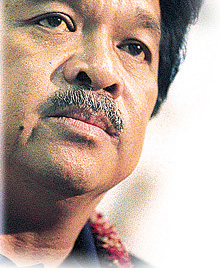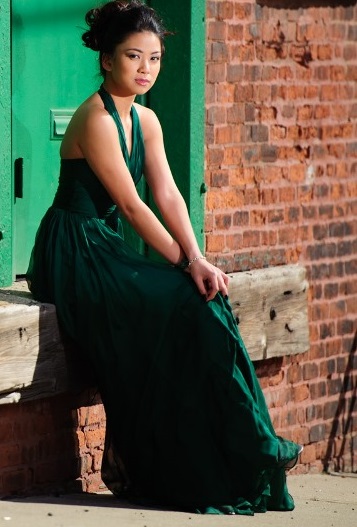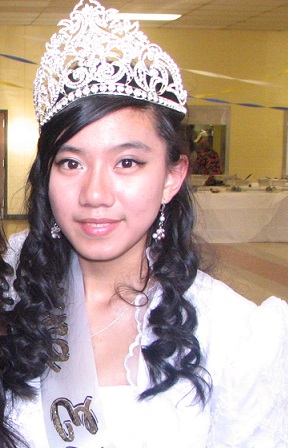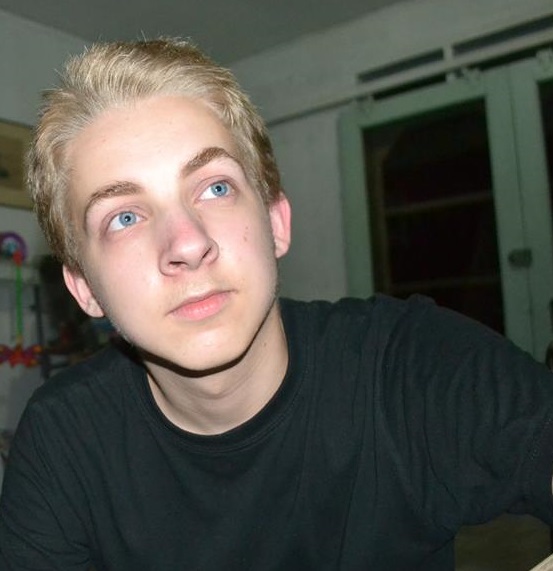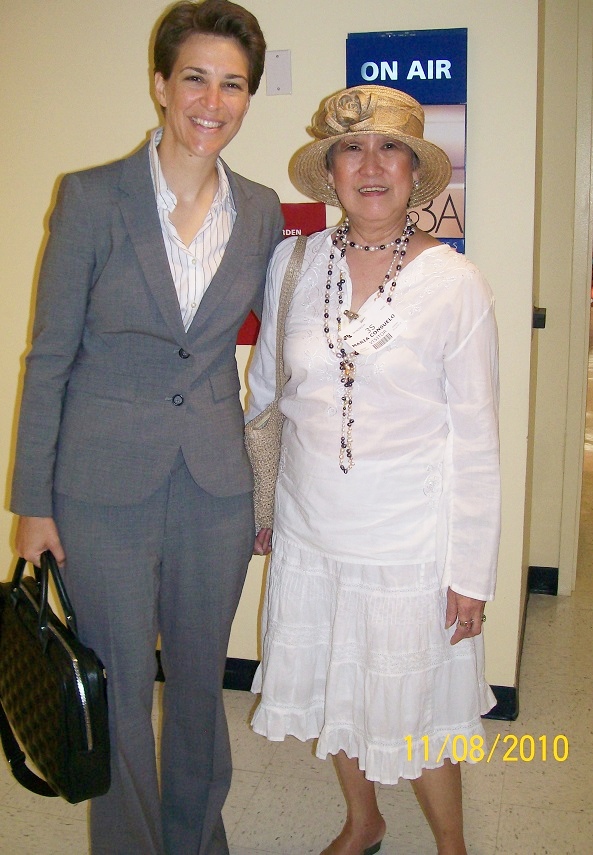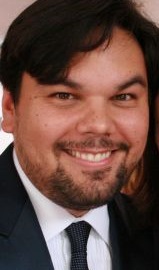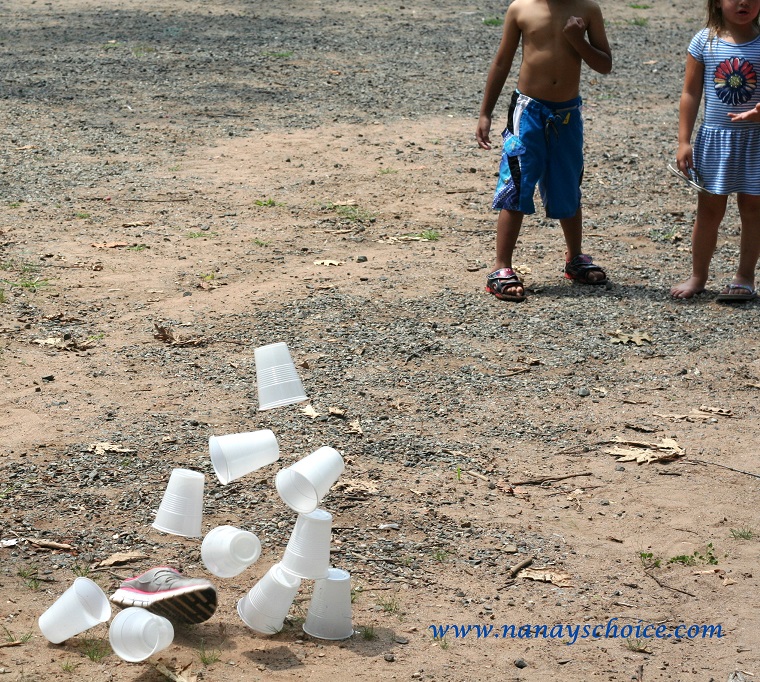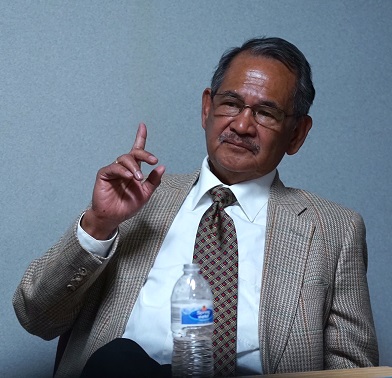Why FilAms don’t donate to political campaigns and what can be done to change that
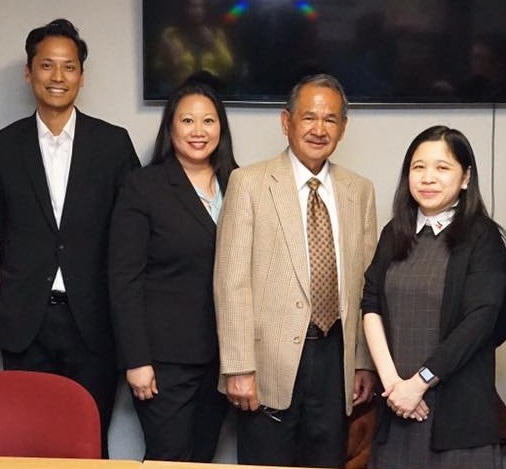
From left: Democratic Party operatives Arvind Swamy, Cheryl Quinio-Blodgett, Bergenfield Councilman Salvador Deauna, and Consul General Tess Dizon-De Vega. Photos by Lambert Parong/ Kababayan Media’
Salvador ‘Buddy’ Deauna is some kind of an accidental politician. His entry into politics was by a stroke of luck; his triumph, he believes, by the grace of God.
Deauna was easily elected councilman of Bergenfield, New Jersey in 2016; he was 70 years old. The city boasts 20 percent Filipinos in its demographics, but he told a Jersey City forum, “they didn’t see me as a brown person.” He ranked Number 2 among the councilmen elected, a few votes shy of the front runner.
According to Deauna, who owns a travel agency, most Filipinos in his town are Republicans. He won because he was affable and very active in his church.
“One Republican whispered to me, ‘Buddy, we will vote for you because we are in the same church,’” he told the community forum “Filipino Americans in Politics,” held March 6 in Jersey City.
His campaign was able to raise about $20K, half of it coming from the Democratic Party, which nominated him, the other half from a series of fundraising efforts. He stressed many of his supporters were FilAms.
“Filipinos are clannish,” he said. “They helped propel me to victory.”
Deauna’s victory is considered by some political observers, like PAFCOM’s Helen Castillo, to be unique. Compared to Jersey City, for example, FilAms could not win elections for many years because there would always be two Filipinos competing for the same position, thus splitting the votes of the community. Rolando Lavarro Jr., who won as councilman on his third attempt finally secured victory after the community cleared the way by convincing others to step aside. Lavarro is currently Council President of Jersey City.
Democratic Party operative Cheryl Quinio-Blodgett shared Deauna’s view that Filipinos tend to support fellow FilAms.
“They really rally around the culture,” said Quinio-Blodgett, president of Keenyo Consultants, LLC, a political consulting firm in New Jersey.
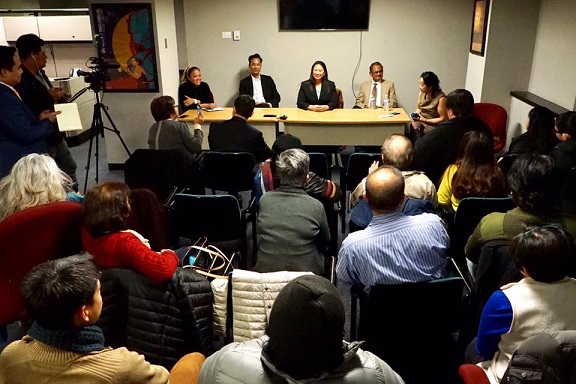
The ‘Filipino Americans in Politics’ panel (from left) moderator Lenn Almadin Thornhill of Fios 1 News, panelists Arvind Swamy, Cheryl Quinio-Blodgett, and Salvador Deauna, and moderator Cristina DC Pastor of The FilAm.
All three panelists agreed campaign finances are crucial to winning elections.
“Money talks,” said Quinio-Blodgett. “They can buy a campaign manager who will help you win.”
Deauna said much of the money he raised went to fliers and the artist who designed them and other campaign logistics.
“TV is the most expensive media place in the country,” said Arvind Swamy, managing partner of City Strategy Group, LLC, another political consulting company in New Jersey. Swamy, who is of Filipino-Indian ethnicity, previously served as the Asian-American outreach coordinator for the late Senator Frank Lautenberg.
The panel examined why FilAms are generally reluctant to support candidates financially. Older Filipinos or the first-generation immigrants tend to look at politics as extremely dirty because of their experience in the Philippines where politicians buy votes or trade them for influence. On the hand, U.S.-born FilAms generally look at fundraising as a necessary part of running a sustainable campaign. As noted by Quinio-Blodgett, “The minute you pay taxes you’re invested in a community.”
But fundraising is a challenging process for first-time politicians like Deauna who credits his wife Cely as his staunchest supporter.
“It’s important that your family supports you,” said Swamy. “If you cannot convince them, it’s hard to imagine asking complete strangers for money.”
Whatever the odds, Consul General Tess Dizon-De Vega urged FilAms to get involved in the political process, not necessarily as political candidates, but as organizers, educators or volunteers. She spoke about “low lying fruits” or those who may be receptive to political engagement and to “tap and nurture them” through mentorship and leadership programs.
Swamy urged FilAms to remember they are not just Filipinos but Americans too, and should not forget that side of their identity.

